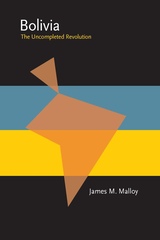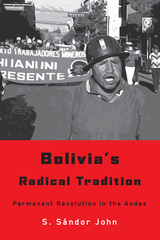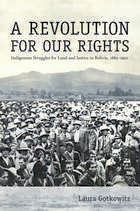


In 1952 Bolivia was transformed by revolution. With the army destroyed from only a few days of fighting, workers and peasants took up arms to claim the country as their own. Overnight, the electorate expanded five-fold. Industries were turned over to worker organizations to manage, and land was distributed to peasant communities. Education became universal and free for the first time in the country's history.
This volume, the result of a conference organized by the David Rockefeller Center for Latin American Studies of Harvard University and the Institute for Latin American Studies at the University of London, presents new interpretations of the causes of the events of 1952 and compares them to the great social transformations that occurred in France, Mexico, Russia, China, and Cuba. It also considers the consequences of the revolution by examining the political, social, and economic development of the country, as well as adding important insights to the analysis of revolution and the understanding of this fascinating Andean country.

Gotkowitz combines an emphasis on national political debates and congresses with a sharply focused analysis of Indian communities and large estates in the department of Cochabamba. The fragmented nature of Cochabamba’s Indian communities and the pioneering significance of its peasant unions make it a propitious vantage point for exploring contests over competing visions of the nation, justice, and rights. Scrutinizing state authorities’ efforts to impose the law in what was considered a lawless countryside, Gotkowitz shows how, time and again, indigenous activists shrewdly exploited the ambiguous status of the state’s pro-Indian laws to press their demands for land and justice. Bolivian indigenous and social movements have captured worldwide attention during the past several years. By describing indigenous mobilization in the decades preceding the revolution of 1952, A Revolution for Our Rights illuminates a crucial chapter in the long history behind present-day struggles in Bolivia and contributes to an understanding of indigenous politics in modern Latin America more broadly.
READERS
Browse our collection.
PUBLISHERS
See BiblioVault's publisher services.
STUDENT SERVICES
Files for college accessibility offices.
UChicago Accessibility Resources
home | accessibility | search | about | contact us
BiblioVault ® 2001 - 2024
The University of Chicago Press









